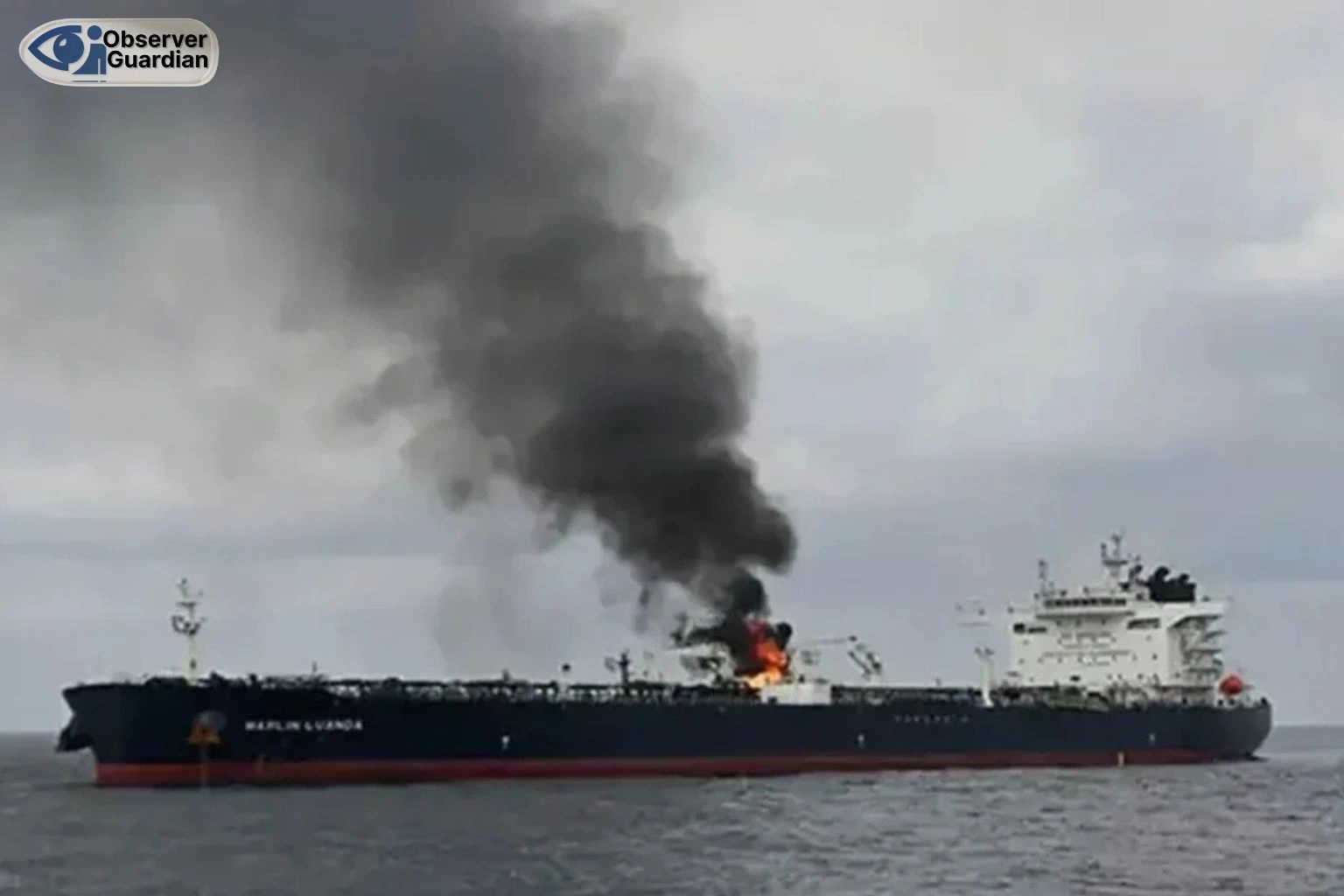A Pakistani-crewed oil and gas tanker was attacked by an Israeli drone while docked at the Ras Issa port in Yemen. The vessel, carrying 27 crew members, including 24 Pakistanis, was struck in one of its LPG tanks, causing an explosion. Fortunately, the crew managed to control the fire before it spread. Following the attack, Houthi forces boarded the vessel and temporarily held the crew, creating widespread concern for their safety. The Pakistani government later confirmed that the vessel and its crew were released and had safely left Yemeni waters after urgent diplomatic efforts.
Background and Regional Context
This attack must be understood in the wider backdrop of rising tensions in the Red Sea and Gulf of Aden. The region has seen repeated clashes linked to the ongoing war in Gaza, with Israel expanding its military actions beyond its borders and the Houthis targeting maritime routes in retaliation. These waters are critical for international oil and gas shipments, meaning any disruption creates ripple effects across global markets. The repeated targeting of commercial shipping in these contested routes underlines how fragile maritime security has become in the Middle East.
Details of the Attack on the Tanker
The Pakistani tanker was docked at the Ras Issa port when the drone strike hit its LPG tank. The explosion caused a brief fire, but the crew quickly contained it, preventing catastrophic damage. Shortly after, Houthi boats intercepted the ship and held the crew aboard. The crew included mostly Pakistanis, with a few Sri Lankan and Nepali nationals. Pakistan’s Interior Minister and Foreign Office worked urgently to ensure their safe release, and eventually confirmed that the vessel had been freed and was sailing away from Yemeni waters without further incident.
Return of millions of Afghans fuels terror potential, experts warn
Strategic and Security Implications
The attack has deep strategic implications. It signals a widening of conflict zones beyond Gaza and into vital shipping lanes, raising the threat level for commercial vessels in the Red Sea. Maritime insurers and shipping firms may face soaring costs as companies are forced to consider longer alternative routes. For Pakistan, the incident highlights the risks its nationals face in volatile regions and increases pressure on its foreign policy apparatus to protect citizens abroad. For global energy markets, even small disruptions can affect supply chains and push up prices, adding to uncertainty.
Pakistan’s Diplomatic Response
Pakistan responded swiftly through its Foreign Office and diplomatic missions, engaging regional partners to secure the crew’s release. Officials emphasized the importance of ensuring the safety of Pakistani citizens and acknowledged the coordinated efforts of security agencies. Domestically, political voices have called for accountability and greater vigilance to prevent similar incidents in the future. The episode may also push Pakistan to reconsider how it positions itself in Middle Eastern conflicts and how it ensures maritime security for its citizens working abroad.







